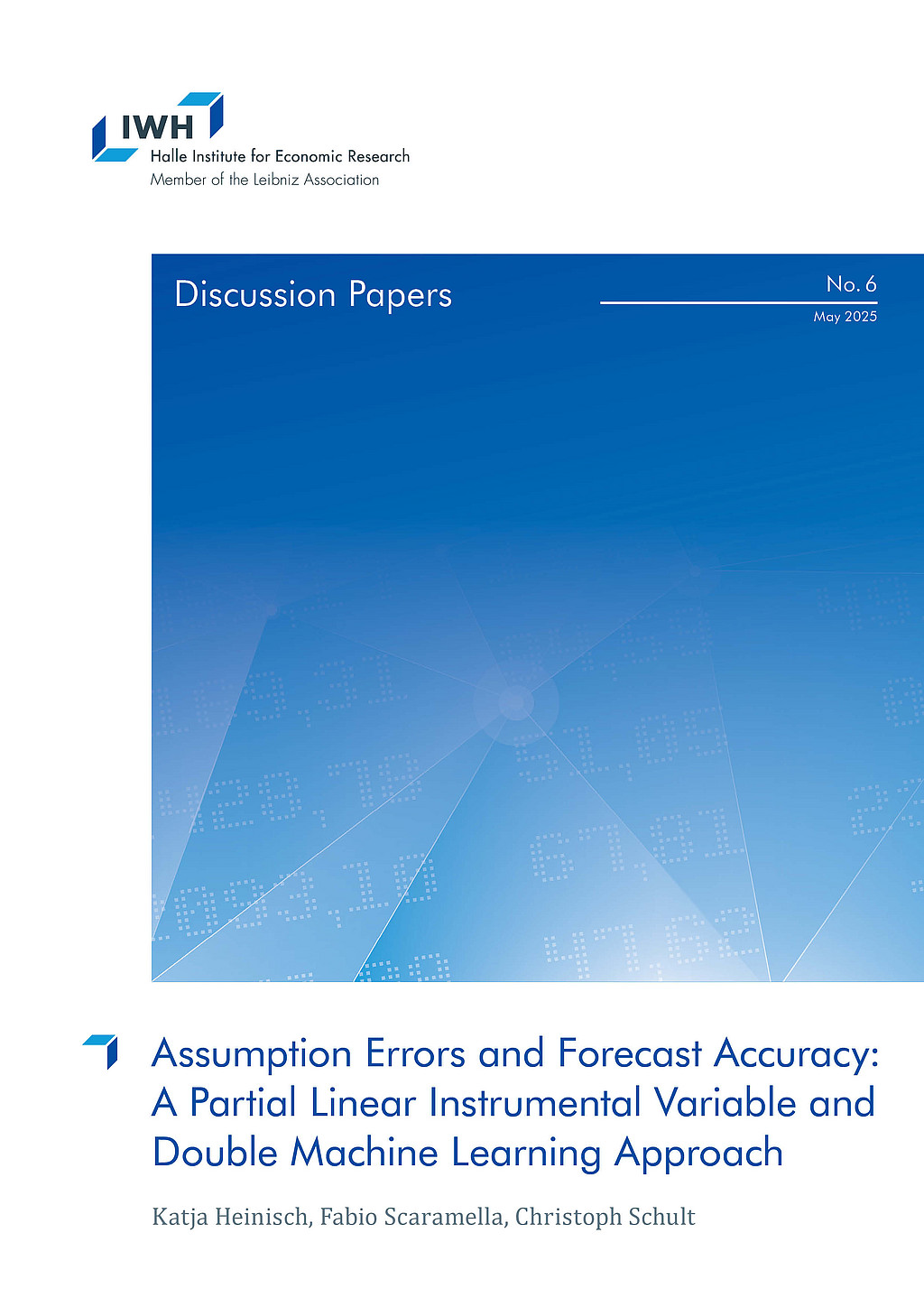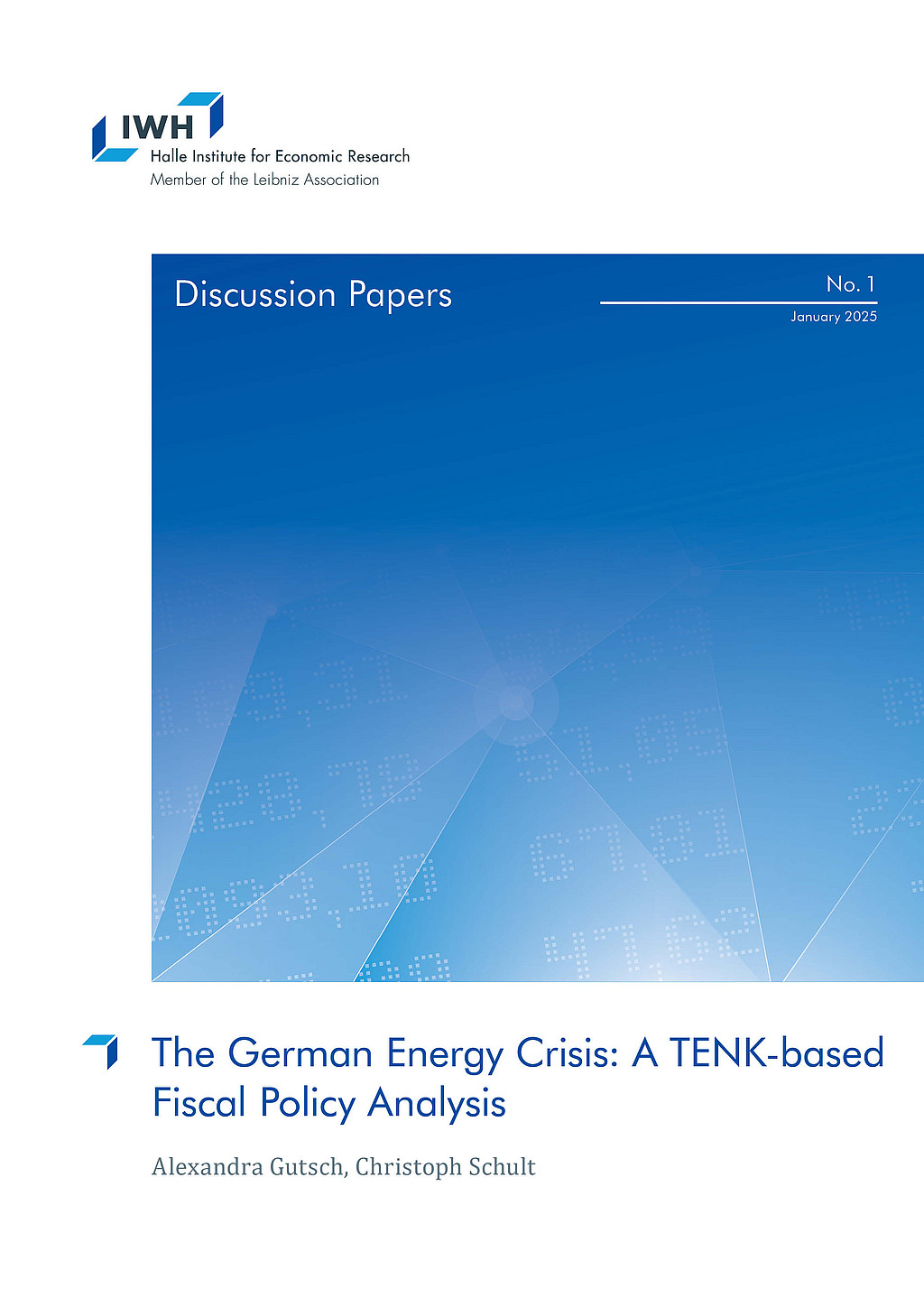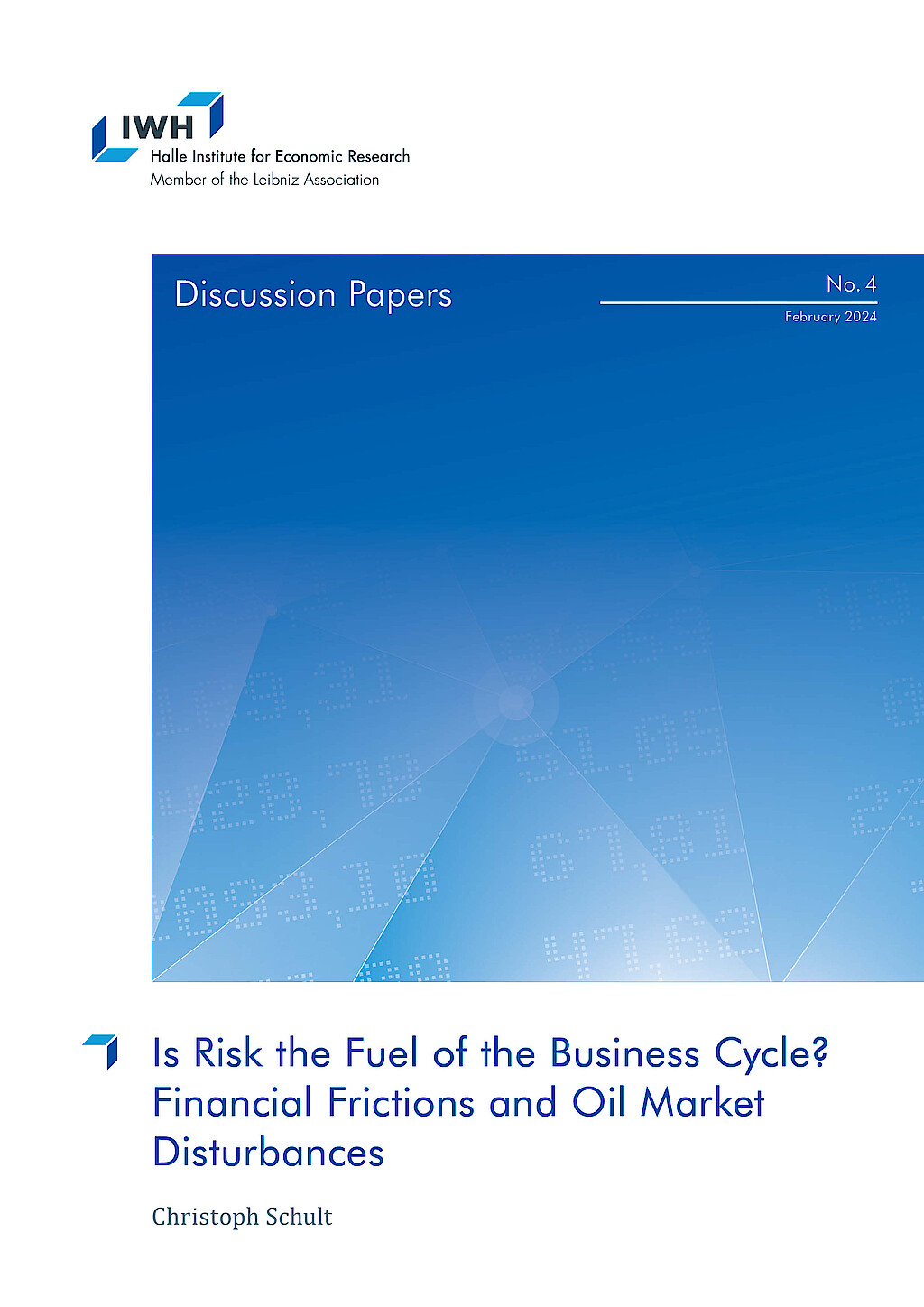Dr Christoph Schult

Current Position
since 7/16
Economist in the Department of Macroeconomics
Halle Institute for Economic Research (IWH) – Member of the Leibniz Association
Research Interests
- dynamic macroeconomics
- energy economics
Christoph Schult joined the Department of Macroeconomics in July 2016. His research focuses on dynamic macroeconomics, forecasting and energy economics.
Christoph Schult received his bachelor's degree from Martin Luther University Halle-Wittenberg and his master's degree from Humboldt-Universität zu Berlin. He got his PhD degree in 2021.








